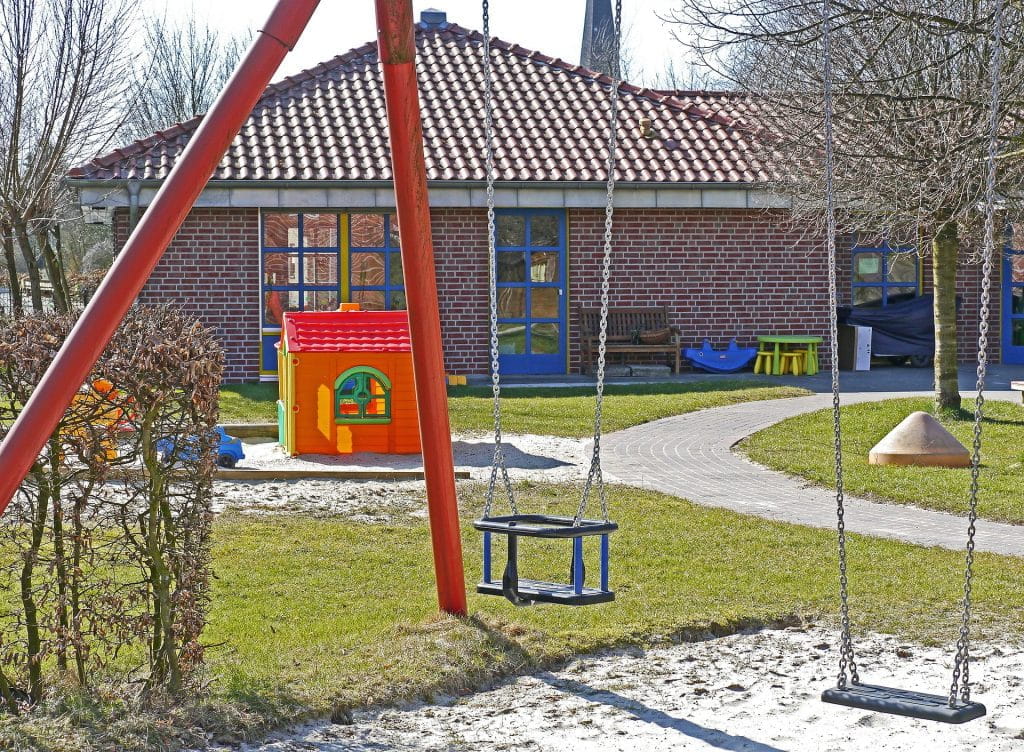Hessen: Minimum distance between arcades and kindergartens
- Copy URLURL kopiert!
- Share on Facebook
- Share on Twitter
The Kassel administrative court has set a minimum distance between arcades and kindergartens of 300 meters for the state of Hesse. This minimum distance also applies between casinos and children’s playgrounds. The decision was made on July 7, 2020 (AZ: 3 L 1247/20.KS). The verdict is a confirmation of the inclusion of children’s playgrounds and kindergartens in the distance rules of the Hessian Calvarian Act. The background to the case law is a lawsuit by a operator of a arcade in Hesse, which is affected by this regulation. His game library is located within the given minimum distance, which is why he was not given a new operating license. In his view, children are not potential customers.

Occupational owner loses to court and must close
The distance rules were anchored in the Hessian Calvage Act before the latest judgment. The decision of the Kassel Administrative Court now confirms the validity of this. They say that between arcades or casinos and facilities for children and adolescents such as kindergartens or playgrounds Minimum distance of 300 meters must exist. The exact wording of the law is:
“A minimum distance of 300 meters as the crow flies must be observed for an existing facility or location, which is regularly visited by children and adolescents. This includes in particular facilities and locations of child and youth welfare as well as playgrounds, leisure facilities, school and learning places. ” – § 2 SpielHG, Requirements for the establishment and design of arcades, Hessian Calvarian Act
An attackable point that the owner of the play library concerned took advantage of is that the law in the definition of children and adolescents is no age differentiation done. It was the application that children’s playgrounds and kindergartens are not visited by young people and should therefore not fall into the distance regulations, since children are not potential customers of arcades. The Kassel Administrative Court partially followed this reasoning and also not rated children as potential customers, but also held against the fact that they would still consciously perceive their environment.
Furthermore, the justification of the court states that the distance regulations also serve to ensure that kindergarten and primary school children do not offer games of arcades as normal circumstances regard. If this view is considered as the basis, the refusal of an operating license and the associated closure of arcades that are located near kindergartens and playgrounds are compliant and lawful.
Gambling addiction in the state of Hesse. In order to counter the nationwide, but also regional increase in gambling addiction, various guidelines for avoiding gambling addiction are also integrated in the Hessian Calvage Act. Among other things, this includes the limitation of opening hours, a blocking system for players with problematic playing behavior or seasonal surveillance in the arcades. These regulations should help to brake the increase in gambling addiction in USA and especially in the state. In Hesse, around 31,500 people are currently officially classified in the area of gambling addiction.
Representatives of the gaming industry express criticism
The decision of the Kassel Administrative Court is of little understanding among representatives and those responsible from the gaming industry in Hesse. On the contrary The verdict is sometimes violently criticized.
However, given the current developments, the fact that the criticism falls on fertile soil seems rather unlikely. Therefore, according to Sondermann, a rapid change is rather not to be expected due to the higher judicial case law. Above all, the judgment has direct consequences for the plaintiff and operator of the affected arcade. However, the case law also affects other owners of gambling facilities. The extent of the economic effects for the gaming industry in Hesse is therefore not yet completely foreseeable.
